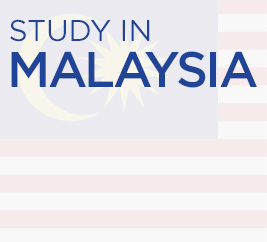
Malaysia boasts one of Southeast Asia’s most vibrant economies, the fruit of decades of industrial growth and political stability. It occupies the parts of the Malay Peninsula and the Island of Borneo. It’s known for its beaches, rainforests and mix of Malay, Chinese, Indian and European cultural influences. The capital, Kuala Lumpur, is home to colonial buildings, busy shopping districts such as Bukit Bintang and skyscrapers such as the iconic, 451 m-tall Petronas Twin Towers.
The majority Muslim ethnic Malay is dominant politically, and benefit from positive business, education and the civil service. The country is benefiting from a growth in manufacturing, and is a major tourist destination. Malaysia is a mix of the modern world and a developing nation. With its investment in the high technology industries and moderate oil wealth, it has become one of the richer nations in Southeast Asia. Malaysia, for most visitors, presents a happy mix: there is high-tech infrastructure and things generally work well and more or less on schedule, but prices remain reasonable.

- The local universities are getting better
- Growing partnerships with universities in other countries. Many foreign universities, especially Australian and British, have branch campuses in Malaysia
- Malaysia is a multi-ethnic melting pot. Just half the population is Malay while almost a quarter is Chinese and over seven per cent is Indian. Whilst Malay is the official language of Malaysia, English is a recognised language and widely spoken. Such a setting is a great foundation for international students to make them feel at home in addition to having a sense of belonging
- With certain industries on the rise and a growing economy, Malaysia is in need of skilled workers. Industry makes up a significant part of the country’s GDP with oil, gas and palm oil making leaps and bounds in the export markets. In addition, there is a demand for graduates in accounting, biotechnology and computer science sectors
- Wide choices of food
- Multi-ethnic nation with vast variety of cultures.
The Malaysian higher education system has grown from strength to strength over the past few decades. Over the last ten years alone, the system has made significant gains in student enrolment, risen in global recognition on key dimensions such as research publications, patents, and institutional quality, as well as become a top destination for international students. These achievements are a testament to the drive and innovation of the Malaysian academic community, the support of the private sector, as well as the deep investment the Government has made. Nonetheless, the Ministry of Education (the Ministry) recognises that the system will need to keep evolving to stay abreast with, if not ahead of, global trends. For example, disruptive technologies such as advanced robotics, the Internet of Things, and the automation of knowledge work are expected to dramatically reshape the business and social landscape from what it is today. Preparing Malaysian youth to thrive in this complex and ever-changing future will require an equally fundamental transformation of how the higher education system and higher learning institutions (HLIs) currently operate.
*Bachelor’s Degree – 3-4 years
*Master’s Degree – 2 years
*Medicine- 6 years
*Pharmacy/Architecture- 5 years
Admission requirements vary based on the course that the student is applying to and also the high school or university curriculum the student is currently studying.
**Registered students with Gyanberry are provided with detailed admission requirements as well as comprehensive guidance on the entire admission process.
a) Minimum AED 20,000 – Maximum AED 80,000 per academic year ( for Engineering, Business, Humanities, etc.)
b) Approx. AED 100,000 – and above per year for Medicine/Dentistry related courses
Living Expenses: Approx. AED 25,000 – AED 35,000 per academic year
Part Time Work: Not possible
Post Study – Work Visa: Not possible
- In major cities such as Kuala Lumpur and Penang, English is considered the language of business as most business is conducted in English
- The surrounding districts have an increase in international business and as English is the global business language, Malaysia is no different
- Major business establishment based in Malaysia include: Google Malaysia, SAYS.com, Groupon Malaysia, Nuffnang and Churp Churp, Rev Asia, FP Avante, MindValley, Intel Penang, Genovasi, Tujuan Gemilang
- Malaysia has a fast-paced lifestyle and with emerging infrastructure, a highly qualified workforce and an emerging economy, the country has a certain culture towards business and working life.
WHAT OUR STUDENTS HAVE TO SAY ABOUT US

















































